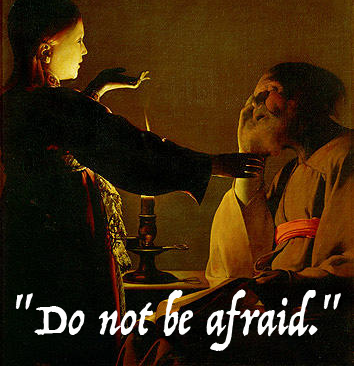
Isaiah 7:10-16 & Matthew 1:18-25
The Fourth Sunday of Advent
We’re in the fourth week of Advent, Christmas is drawing near. The time of the solstice approaches, the longest of nights, the most somber of days, the darkest moments just before the light returns in strength. We celebrate the birth of Jesus as the enfleshed promise of God’s hope for the world in this season, associating this dawning of peace with the return of the sunlight, warmth and daylight at the solstice apex.
An unknown saying, dating to the 1600s relates this promise inherent in the season of Advent: “The darkest hour is just before the dawn.” In Isaiah 7 we hear a verse which is woven into the Christmas birth story of Jesus: the promise of a child, a physical sign and symbol of God’s presence with us. Spoken to the Judean King Ahaz by the prophet, the word was intended to give hope, the promise of a future, even as the city was besieged by adversaries and enemies. In the darkest of moments, Isaiah points to the glimmering hope of God’s promise of Immanuel : God with the people. The poetry of a child to be born, who will eat solid food in freedom, signaling the end of the city siege, the departure of the enemies of the people, the promise of peace in the 7th century BCE is reread by us through the lens of Christ Jesus as a promise for us today.
In the reading from Matthew we hear of Joseph’s experience of the announcement of his fiancée’s pregnancy for which he should legally, and if he follows God’s ways, divorce and renounce her. Forgiving and forget- ing was not an option. But his encounter with the angelic messenger changes him. Here again is the darkest moment of doubt and hurt before the transformative light of divine promise and providential plans. Joseph changes his way of seeing things, or maybe he discovers how to really see? His love of Mary and of God overcomes his religious sense of duty, or obligation. Rather than following the law or cultural tradition, he follows the word of God. His life is changed. The life of Mary is changed. That change, based upon his courage and conviction, which enabled him to put aside seemingly established tradition and obligation, in order to birth something new. Our lives are changed because of his faithfulness. Rather than abandoning himself to doubt, bitterness or to a violent reaction to suspected rejection by Mary; he entrusts himself into the love of God-with-us in all moments, makes a new beginning. (Image credit: “Joseph & the Angel” Georges de la Tour, 1652.)
Questions for the Practice of Examen & Contemplation
- How are these passages pointed to in promise of 2 Corinthians 5:17 which says “If anyone is in Christ, there is a new creation: everything old has passed away; see, everything has become new!”?
- How do you hunger for “new creation” in your life?; in our world today?
- How do you experience the promise, potential and passion of God with us – God with you – in your life?; in our city?; in our shared world? Talk with God of how you want eyes with which to see more of the Divine Presence in our world today.
LINK to study sheet of the Biblical text with examen questions.